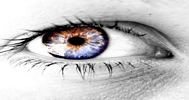|
|
 Acne (1,500) Acne (1,500)
 Addictions (1,500) Addictions (1,500)
 Advice (1,500) Advice (1,500)
 Allergies (1,092) Allergies (1,092)
 Alternative Medicine (1,500) Alternative Medicine (1,500)
 Anti Aging (1,500) Anti Aging (1,500)
 Breakup (1,500) Breakup (1,500)
 Cancer (1,499) Cancer (1,499)
 Dental Care (1,500) Dental Care (1,500)
 Disabilities (1,500) Disabilities (1,500)
 Divorce (1,500) Divorce (1,500)
 Elderly Care (1,498) Elderly Care (1,498)
 Goal Setting (1,500) Goal Setting (1,500)
 Hair Loss (1,500) Hair Loss (1,500)
 Health and Safety (1,497) Health and Safety (1,497)
 Hearing (1,500) Hearing (1,500)
 Law of Attraction (1,499) Law of Attraction (1,499)
 Marriage (1,500) Marriage (1,500)
 Medicine (1,497) Medicine (1,497)
 Meditation (1,499) Meditation (1,499)
 Men's Health (1,500) Men's Health (1,500)
 Mental Health (1,500) Mental Health (1,500)
 Motivational (1,500) Motivational (1,500)
 Nutrition (1,495) Nutrition (1,495)
 Personal Injury (1,499) Personal Injury (1,499)
 Plastic Surgeries (1,500) Plastic Surgeries (1,500)
 Pregnancy (1,496) Pregnancy (1,496)
 Psychology (1,500) Psychology (1,500)
 Public Speaking (1,500) Public Speaking (1,500)
 Quit Smoking (1,500) Quit Smoking (1,500)
 Religion (1,499) Religion (1,499)
 Self Help (1,500) Self Help (1,500)
 Skin Care (1,500) Skin Care (1,500)
 Sleep (1,500) Sleep (1,500)
 Stress Management (1,500) Stress Management (1,500)
 Teenagers (1,492) Teenagers (1,492)
 Time Management (1,500) Time Management (1,500)
 Weddings (1,500) Weddings (1,500)
 Wellness (1,500) Wellness (1,500)
 Women's Health (1,500) Women's Health (1,500)
 Women's Issues (1,500) Women's Issues (1,500)
|
Until recently antibiotics were the treatment of choice for bladder and kidney infections. (Also known as cystitis or inflammation of the bladder) The trouble with antibiotics is that they are not specifically able to target and destroy the bacteria that cause the infection. Instead they wipe out all the bacteria in the body including the friendly kind that assist our health and wellbeing. Destroying friendly bacteria increases the chance that you will get a yeast infection or an upset stomach, replacing one problem with another.
In over 90% of cases of bladder and kidney infection Escherichia coli is the culprit. E. coli have small, sticky, finger like projections that attach to the cells lining the urethra, bladder and kidneys. These sticky projections on the E. coli cell walls are called lectins and they enable the E. coli to work their way deeper and deeper into the urinary tract where they colonize and cause troubling infections.
E. coli are normally considered to be friendly bacteria when they are confined to our intestinal tract but when they travel to the urinary tract they are anything but friendly. Unfortunately treating E. coli infections is normally undertaken with antibiotics which often lead to yeast infections.
Fortunately nature has provided a safe and very effective treatment, a member of the sugar family called D-Mannose. Occurring naturally in some fruits such as cranberry, D-Mannose is chemically similar to Glucose although it won't raise blood sugar levels like Glucose does.
Small amounts of D-Mannose are metabolized in the body but the bulk of it is excreted quickly into the urine. D-Mannose binds strongly to the lectins, the sticky projections on the E. coli cell wall with such strength that E. coli can no longer attach to the urinary tract walls. The result is that the E. coli bacteria are rendered harmless and are flushed away in the urine. No bacteria are killed in the process. E. coli is simply and quickly removed from the urinary tract and the infection is avoided.
Pure D-Mannose powder is easy to use and safe, even if used for long term treatment. D-Mannose is suitable for children, women and men. To treat an acute infection take TWO level 1.25ml metric teaspoonsful in a large glass of water every TWO to THREE hours during waking hours for 48 hours.
With all treatments there are some precautions. If a urinary tract infection is not substantially improved in 24 hours it is important to consult a doctor. Over 90% of all bladder and kidney infections are caused by E. coli but a small percentage of urinary tract infection result from other micro-organisms and may require antibiotics.
D-Mannose may prevent sperm fertilizing the egg and thus prevent conception. Although the mechanism by which this happens is not fully understood it is thought that D-Mannose may bind to sperm and prevent interaction with the egg. Further investigation is under way with a view to creating a D-Mannose contraceptive. The contraceptive effect of D-Mannose appears to be short lived however. We recommend that if you are trying to conceive that you avoid the use of D-Mannose for a day before and after intercourse at ovulation time. D-Mannose is not recommended as a contraceptive as no reliable studies on efficacy have yet been conducted.
Signs and symptoms of urinary tract infections include burning or stinging when passing urine, passing only small amounts of urine at a time, fever, chills, vomiting, pain in the lower stomach or back and discolored, smelly or cloudy urine.
Although the mechanism of action is not understood there are many interstitial cystitis sufferers who also report good results with D-Mannose.
D-Mannose offers both acute and chronic cystitis sufferers a real treatment alternative to using antibiotics.
|
|
|



